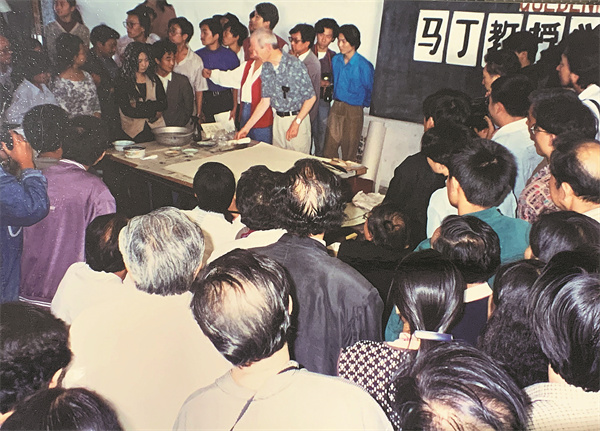

"His use of nature-based abstraction and handwritten text and his preference for artworks made of paint on paper was recognized by Chinese artists and scholars as they share a common source of inspiration from both classical and contemporary Chinese art," says Grady, who virtually attended the memorial and opening ceremony of the exhibition on Feb 25.
"Martin had a strong interest in Confucian culture from a young age, and his works showed elements of Chinese culture, such as the use of ink," Ren Min, former assistant to the president of the San Francisco Art Institute and director of the International MFA program at the China Academy of Art in Hangzhou, Zhejiang province, told China Daily.
Martin began chaperoning faculty, staff and students from the art institute on trips to China as early as 1986, making the school one of the first Western art institutes to have exchange programs with China since the country's reform and opening-up started in 1978.
In subsequent years, Martin and his colleagues and students visited China to study Chinese culture and art, and they also gave lectures and held exhibitions. In return, the art institute has received and helped educate many famous Chinese artists over the past three decades.
"Many Chinese artists have come to San Francisco for further studies thanks to Fred's efforts. Some students, including me, lived in Fred's home when we first arrived in the US. He was like a father for us," says Ren, who arrived in San Francisco as an MFA student in 1987.
From 1988 to 2017, Martin held several solo exhibitions at universities and museums in Shanghai, Jinan, Hangzhou, Shenyang and other cities across China.
At the age of 90, Martin donated 36 manuscripts and pieces of art to the China Academy of Art, the fruit of a nearly 70-year artistic career.
"Fred seemed to be accepted by the Chinese art community in a way that foreigners seldom achieve or even understand. Being a literati artist is a highly revered status in Chinese culture," says Grady.